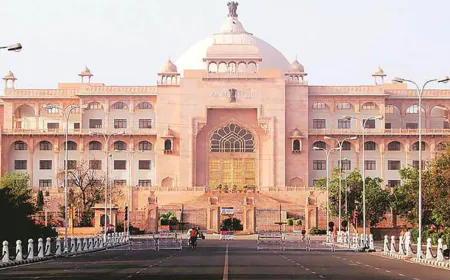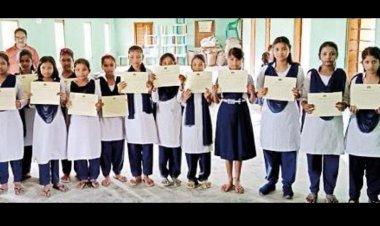New National Education Policy emerged as a blueprint for global education reforms, G-20 countries also agreed
Even though some states and political parties of the country are seen doing politics regarding the implementation of the new National Education Policy, the world is not only impressed by this policy but is also seeing it as a blueprint for global education reforms. So far, more than four meetings have been held between the G-20 countries on different subjects regarding education and skill development.

Even though some states and political parties of the country are seen doing politics regarding the implementation of the new National Education Policy (NEP), the world is not only impressed by this policy but is also seeing it as a blueprint for global education reforms.
The G-20 countries believe that all aspects related to the need for reforms related to education in the world or the work being done in this direction are included in the NEP. In these, all subjects from primary education to higher education, innovation, research, technology, and skill development have been given prominence.
The special thing is that these were also the priority topics of the agenda related to education and skills at the G-20 conference. This conclusion of the G-20 countries regarding NEP has come to the fore when the ongoing meeting under the chairmanship of India is nearing its end.
So far, more than four meetings have been held between the G-20 countries on different subjects regarding education and skill development. In these meetings, the Ministry of Education prominently placed the reforms to be carried out under the NEP. Also told that the world can also move forward by adopting these reforms.
During this, G-20 member countries also presented their works related to education reform at every level, but no country could keep a roadmap for education reform like NEP. Which includes all aspects from small to big. Along with this, no such major thing came to the fore, which was left out in the NEP and was found necessary for improvement.
There was a long discussion in the G-20 meetings on providing basic literacy and numeracy to children at the primary level. During this time, Australia is running its Connected Beginnings Program, Canada has an Early Learning and Child Care (ELCC) system, Brazil has improved its education and technology curriculum, Saudi Arabia has a teacher mentorship program, the European Union Pathway initiative, and China Introduced the Compulsory Education Curriculum Scheme, etc. prominently.
At the same time, India put forward the magic box prepared for primary level children under NEP. Initiatives like teaching numbers and the alphabet and teaching in mother tongue were introduced along with teaching children through sports. Along with this, initiatives like the introduction of preschool, 100% enrollment, capacity building of teachers, and sports-based education were kept.
In this way, France, Canada and Britain also put forth their initiatives regarding primary-level research. On this, India put forward initiatives such as increasing engagement with industries, including the National Research Foundation of NEP.
For Latest News update Subscribe to Sangri Today's Broadcast channels on Google News | Telegram | WhatsApp

















































































































.jpeg)














